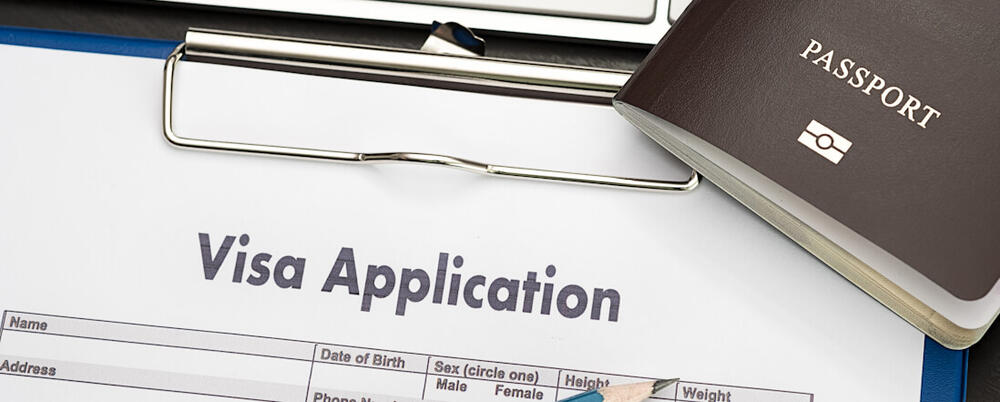Getting your travel authorisation is a key part of planning your move. For many nationalities, securing short-term visas for Turkey is a refreshingly simple online process (e-Visa), and many others can enter visa-free. Securing long-term residence and work permits, however, is a different beast and a much more involved, bureaucratic process.
Expats must ensure their passport is valid for at least six months from their date of arrival in Turkey.
Visit visas for Turkey

When it comes to visit visas for Turkey, the process depends entirely on your nationality. Many European citizens can enter visa-free for up to 90 days. Citizens of the UK, USA, and Canada can now enter Turkey visa-free for up to 90 days within a 180-day period.
For other nationals, including Australians, the electronic e-Visa is the standard requirement. While visa-on-arrival kiosks still exist at some airports, authorities strongly recommend all eligible travellers get their e-Visa online before departure. The e-Visa application is a straightforward online form that can be completed in minutes.
Most tourist e-Visas (and visa-free entries) grant a stay of up to 90 days. This 90-day limit is part of the ‘90-in-180’ rule. It used to be possible to leave Turkey briefly and re-enter immediately for another 90-day period. This loophole has been firmly closed. Visitors can only stay in Turkey for a total of 90 days within any 180-day period. These days do not have to be consecutive, but the limit is strictly enforced. The law directly affects expats who previously lived in Turkey on a tourist visa by making ‘visa runs’ – exiting the country temporarily to reset the clock.
Those who overstay their visa will face fines and potential entry bans. This policy is designed to encourage long-term residents and expats to apply for proper residence status, rather than living in the country on back-to-back tourist visas.
Useful links
Digital Nomad Visas in Turkey
Launched in April 2024, the Digital Nomad Visa offers a route for remote workers aged 21 to 55 to live in Turkey without a local employer. To qualify, you must hold a university degree and prove a stable monthly income of at least USD 3,000 (or USD 36,000 annually).
The process is two-fold: first, you apply for a Digital Nomad Identification Certificate via the official government platform. Once certified, you take this document to a Turkish consulate in your home country to obtain the actual visa. This visa allows you to bypass the standard ‘local sponsor’ requirement and is currently open to citizens of the EU, the UK, the USA, and Canada, among others.
Work visas for Turkey

Once an expat has secured a job offer, the process for obtaining work visas for Turkey begins. The expat must apply to their nearest Turkish mission (consulate or embassy) to obtain a work visa. This application typically requires a passport, the visa application form, and a letter or contract from the employer.
This is a dual application. Simultaneously, the employer must submit a corresponding set of documents to the Turkish Ministry of Labour and Social Security (no later than 10 working days after the expat’s application) to begin the work permit application. The entire process, if all documents are in order, can take up to two months to be finalised. Upon arrival, the work permit card itself functions as the residence permit, so a separate application is not needed.
Useful links
- Turkish Ministry of Labour and Social Security
- Turkish Consular Procedures (Visa Applications)
- Ministry of Foreign Affairs (Work Visa Info)
Residence permits for Turkey
Foreigners approved for a work permit do not need to apply for a separate residence permit, as the work permit itself grants them residence authorisation.
Dependants (spouses and minor children) of a work permit holder must apply for a ‘family residence permit’. This process typically begins by obtaining an appropriate visa from a Turkish consulate, after which they must file their formal residence permit application within Turkey via the central e-İkamet system.
For those not on a work permit (such as spouses, students, or property owners), the ‘Short Term Residence Permit’ (STRB) is the most common path. Depending on the category, these are typically issued for one or two years at a time. Other permit types, like student or family permits, have different standard validities.
All foreigners staying in Turkey for an extended period must complete their mandatory address registration at the local Civil Registry Office (Nüfus Müdürlüğü). This registration is required for many aspects of life in Turkey, including banking, utilities, and future permit renewals.
Crucially, you must choose your address carefully. To manage population density, the government has ‘closed’ over 1,100 neighbourhoods to new foreign residence permits. If you rent an apartment in a closed zone (such as Fatih or Esenyurt in Istanbul), your residence permit application will be automatically rejected, even if your paperwork is otherwise perfect. Always check the official closure list before signing a lease.
Useful links
- e-İkamet (Official Residence Permit Application System)
- Presidency of Migration Management (Göç İdaresi)
Visa regulations are subject to change at short notice, and expats should contact their respective embassy or consulate for the latest details.
